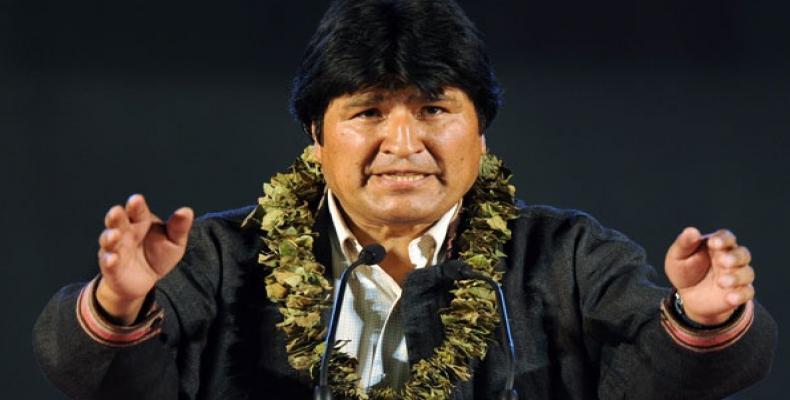La Paz, January 22 (RHC-teleSUR) -- In 10 years of indigenous president Evo Morales, the Bolivian government and movements have made significant social progress.
Bolivian President Evo Morales gave his annual address Friday, also marking the 10th anniversary of his administration and six years since the foundation of the Plurinational State of Bolivia.
Morales recalled that under the “neoliberal governments” in 2002, he was expelled from parliament and accused of being a terrorist and drug trafficker, but he said lies can not be hidden and so the people elected him as president.
“Change is hard sometimes, but its necessary,” Morales said, adding; “Peace can only be achieved through social justice.”
The country's first indigenous head of state gave a detailed report on the 10 years of progressive government. He spoke about the advances in tax collection and the increase in people’s purchasing power.
During the 10 years that Evo Morales has been president, extreme poverty has been significantly reduced and economic growth has been among the highest in the region at over 5 percent a year. The Andean nation’s exports have risen to US$10 billion, Morales said.
Next February 21st, Bolivians will decide whether to modify the 2009 constitution to allow Morales to run again in 2019. If Bolivians vote “Yes,” he will continue his government until 2025.


